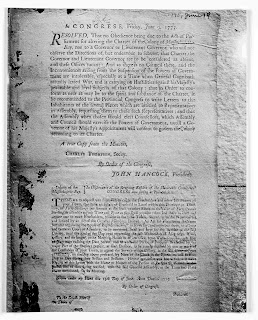The American Revolution had a big effect on the European way of thinking. It demonstrated that it was possible to overthrow an oppressive government. Some of the big effects this had on Europe is that It not only served as an inspiration for France, but also demonstrated that the liberal political ideas of the Enlightenment were more than just nonsense ideas of just people wasting their time but they were really intellectual and well analyzed. We can see that the three major events of the American Revolution had great influence on Europe were: First, the signing the Declaration of Independence. Second, implementing the ideas of Enlightenment and third the formation of the U.S constitution.
First, America by declaring independence demonstrated that it was possible to oppose and not to be agree with old governments, authorities, or laws and ways of doing things. This was the first time a colony had opposed and expressed what they really feel. They also successfully declared its rights to self-government. As an effect of this succesful action many European nations and colonies were inspired and felt confident to express what they felt and what they wanted for their nations. So this made other nations free and at some point this started the evolution of certain things.
Second, The United States had created a new social contract in the form of its Constitution, in which they realized the ideas of Enlightenment. The rights of man, the ideas of liberty, equality, and freedom of religion. this were no longer normal ideas, they took them seriously and started to analyze them. The people who consist the U.S Constitution rejected the ideas of some models such as greeks civic republicanism. They analyzed the differences between the democracy and their own system of representative democracy. This made the burguesy of Europe reconsider their own government and systems.
We can also see how all these factors were part and had an effect in the French Revolution, where the revolutionaries formed their own things like their slogan, “Liberty, Equality, Fraternity”. Europeans obtained information about the American Revolution from soldiers returning from America. French soldiers returned to France with ideas of individual liberty.The French then protested against their monarchy, which they saw as tyranny.
So with all this factors we can really see the impact the American Revolution had around the world and between different nations which took America as a role model.

















